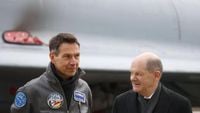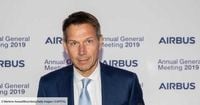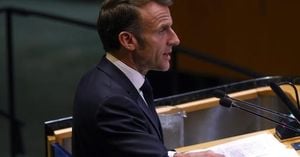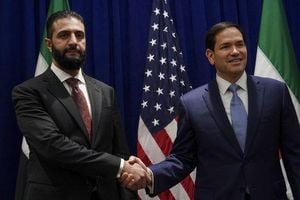In a stark warning that has sent ripples through European defense circles, René Obermann, the chairman of Airbus, expressed grave concerns about the potential for a military conflict between NATO and Russia. In an interview with the German newspaper Handelsblatt on March 24, 2025, Obermann asserted that NATO countries are closer to a confrontation with Russia than many officials currently realize.
Obermann's remarks come at a time when defense experts generally anticipate that any Russian offensive against a NATO member could occur no earlier than 2029. However, Obermann believes this timeline could be much shorter, stating, "I am convinced that NATO countries are much closer to a military conflict with Russia than many officials currently think." He emphasized that the precarious situation in Ukraine, coupled with significant Russian military maneuvers planned in Belarus, raises alarms about the immediate future.
According to Obermann, the Russian military is not only rearming but has also converted the entire economy towards a war footing. He noted that President Vladimir Putin has amassed a staggering 1.5 million soldiers ready for action, which he described as a significant escalation. "The Russian army has intensified command structures on our eastern flank," he warned, highlighting the deployment of tactical nuclear weapons and ballistic missiles in Belarus, similar to previous actions taken in Kaliningrad.
Obermann's insights echo sentiments expressed by military experts, including Sönke Neitzel, who recently suggested that 2025 could be the "last summer of peace" in Europe. This growing concern about Russia's military intentions has prompted calls for a coordinated European response. Obermann specifically urged Germany to consider acquiring tactical nuclear weapons in collaboration with France and other European nations.
"We need a European-led deterrent, extended to tactical elements, in addition to nuclear participation in US-controlled systems," Obermann stated, advocating for a robust defense strategy that reflects the current geopolitical landscape. He stressed the importance of European nations taking control of their own defense destinies, rather than relying solely on external support.
Furthermore, Obermann pointed out that while Europe spends more on defense annually than Russia, this comparison must account for purchasing power parity. He explained that Russian manufacturing costs are significantly lower, allowing them to produce military equipment more economically. "The Russians manufacture products much cheaper, particularly because they do not purchase as many different systems as Europe does," he noted.
As tensions continue to escalate, the urgency for a unified European response becomes increasingly apparent. Obermann's call for action comes amid ongoing discussions about how NATO should address the evolving threat posed by Russia. The situation in Ukraine remains a focal point, with many experts warning that the conflict could spill over into broader European hostilities.
In light of these developments, the need for a comprehensive and strategic defense policy in Europe is more critical than ever. Obermann's warnings serve as a wake-up call for NATO members to reassess their military readiness and response capabilities.
As NATO allies grapple with these pressing issues, the potential for an armed conflict looms larger, compelling European nations to consider their defense strategies seriously. The stakes are high, and the time for decisive action is now.





